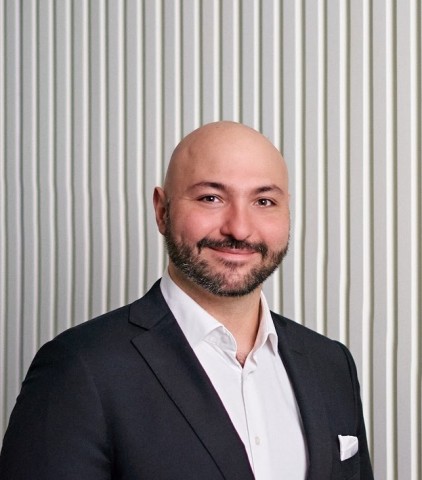MCAA Best Innovator Award winner: “Having a participatory approach is a natural way of working for me”
Newsletter
Guido Giunti
The 2023 edition of the Best Innovator Award went to two MCAA members. One of them is Guido Giunti, a medical doctor specialising in the use of digital health solutions for people with chronic conditions. He is a firm believer in having the patient at the center of innovation.

Guido Giunti is an Adjunct Professor and Senior Researcher at the University of Oulu in Finland who first started to innovate in the healthcare sector in order to empower patients and enhance their self-care. Among other initiatives, he leads the design and development of More Stamina, a digital therapeutic for fatigue management for people with multiple sclerosis. He has also designed “Immune Defense”, an educational video game that teaches the immune system’s fight against infections using real immunobiological concepts.
How does it feel to win the award?
“It's incredibly rewarding to be recognised like this. I am often reminded of a friend who told me that the issue with having a new idea is not that someone will steal it from you but that you have to convince other people that it's worth pursuing. That's how innovating feels sometimes. Another thing about awards is that they feel very reductive in that they are given to an individual, and to be honest, I would not be able to do the things I do if it were not for the people I work with.”
What journey led you to this award?
“MSCA has been an integral part of the journey. If it wasn't for me doing my doctoral research as part of the CHESS ITN project, which exposed me to so much more than a normal PhD programme, I wouldn't be here.
I was still working as a general practitioner in Argentina when I started innovating in digital health. As a general practitioner, you only see a person for 20 minutes per year; the rest of the time, they are on their own. My thinking was that technology could be a way for people to self-manage, so I started investigating how gamification could be used for patient empowerment. I was fortunate that my PhD allowed me to simultaneously work on an SME (small and medium-sized enterprise), which brought me towards designing and developing digital solutions for patients. At one point, we were discussing the features our solution should have, and it occurred to me that we should directly ask patients. I started framing the discovery of user needs in terms of focus groups and interviews and held co-creation workshops with patients and healthcare professionals. Eventually, having a participatory approach became a natural way of working for me.
When I started as a postdoc in Finland, my goal was to keep working on my ideas for patient empowerment and create a multidisciplinary team where we could have different perspectives. Through hard work and a bit of luck with funding, I was able to start the Digital Therapeutics Research Group at the University of Oulu. The rest has been about finding the golden path that allows me to work with inspiring people and keep the patient at the center of everything.”
How will this award propel you in your future endeavours?
“Receiving the Best Innovator Award is like a big shout-out for all the hard work we've been doing. It's also a great way to get others interested and involved, maybe even find new partners or support to help our projects grow. One of the main challenges that we face as we move deeper into applied research and further toward product development is bridging the gap between research and industry. At a certain point, research grants are no longer effective for taking solutions to a broader audience, so I hope that this kind of endorsement will help us reach more people.”
What are your future goals?
“I'm really looking forward to working on even more projects that can be scaled and impact people’s lives. The dream would be to be able to run a portfolio of solutions that are evidence-driven and have real benefit for the lives of people with chronic conditions.”
What advice do you have for the MCAA?
“I think that we need to help researchers realise the global need for effective science communication. It's still pretty common to find colleagues who believe that dissemination is a chore. I think it's our duty,not only because we need people to know that what we do matters but also because we never know who may be inspired to continue the work. It's about sharing the flame so that others may also shine bright.”
Kira Keini
MCAA Communication Officer
kira.keini@mariecuriealumni.eu
@kirakeini